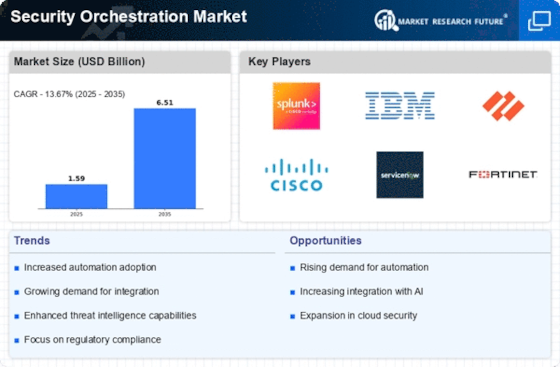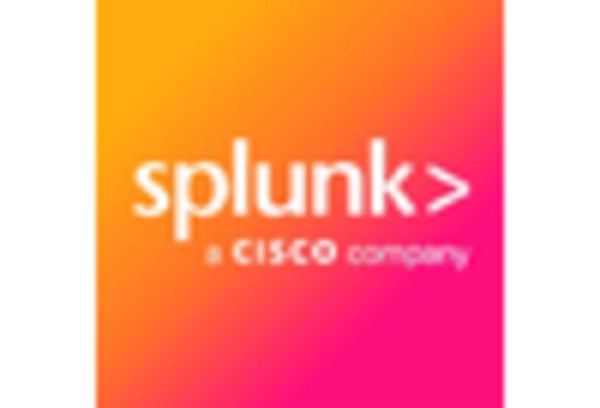Market Analysis
In-depth Analysis of Security Orchestration Market Industry Landscape
The market dynamics pertaining to security orchestration are influenced by a multitude of factors that impact the uptake, expansion, and development of security operations automation and streamlining solutions. To improve threat detection, incident response, and overall cybersecurity posture, security orchestration entails integrating diverse security tools, processes, and technology. Due to the increased complexity of cyber threats and the increasing demand for effective security management, this industry has seen substantial changes. Growing in volume and sophistication, cyber threats are one of the main factors influencing the dynamics of the security orchestration industry. There has been an increase in the need for security orchestration systems that can consolidate security operations, automate response activities, and boost security teams' productivity as enterprises deal with a deluge of sophisticated malware, targeted attacks, and persistent threats. The need to improve threat detection and incident response capabilities in the face of changing cyber threats is what is driving this trend, which is impacting the security orchestration market dynamics. Furthermore, the dynamics of the security orchestration market have been significantly shaped by the lack of qualified cybersecurity specialists and the requirement for operational effectiveness. Organizations are finding it increasingly difficult to address the cybersecurity skills gap, so they are turning to security orchestration platforms to automate repetitive operations, standardize procedures, and free up security teams to concentrate on high-priority threats and strategic projects. This has changed the dynamics of the security orchestration market by creating a spike in demand for solutions that provide case management, workflow automation, and integration with security technologies. Furthermore, the market dynamics of security orchestration have been greatly impacted by the regulatory environment and compliance needs. Organizations under pressure to install security orchestration solutions that ensure compliance, streamline incident reporting, and enable rapid response to security issues due to data protection requirements, industry-specific compliance standards, and the necessity for robust security measures. The market dynamics of security orchestration have been impacted by the creation of security orchestration platforms that provide audit trails, compliance reporting, and incident response playbooks in order to comply with regulatory requirements. In addition, the need for security orchestration has increased due to the growing use of hybrid IT environments and cloud-based security solutions. It is now critical to coordinate security operations across several platforms and settings as enterprises adopt cloud computing, SaaS apps, and distributed IT infrastructure. As businesses look to enforce consistent security policies and response procedures, security orchestration solutions that provide seamless integration with cloud security tools, API-driven workflows, and support for multi-cloud environments have become more popular. This has had an impact on the dynamics of the security orchestration market. The competitive environment and technical developments have also influenced the security orchestration market dynamics. The market is more competitive now because of the existence of well-known security vendors that supply security orchestration platforms as well as the rise of creative startups and niche suppliers. The market dynamics of security orchestration have been influenced by product differentiation, price tactics, and technology advances targeted at gaining market share and meeting businesses' changing security needs.


















Leave a Comment